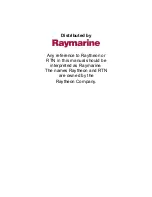
B-58
UTILIZZO IN SICUREZZA
L’uso del verricello è vietato nei
seguenti casi:
1) sollevamento e trasporto di persone
(vedi §A.14)
2) traino di carichi (vedi §A.14)
3) utilizzo con organo di presa diverso
dal gancio
4) utilizzo del verricello prima che la
macchina su cui sarà installato sia stata
dichiarata conforme alla direttiva
2006/42/CE.
Per garantire i requisiti essenziali di
sicurezza, l’operatore deve operare con
l’argano solo quando la carrucola è
posta ad una distanza minima (Dv) tale
che l’angolo massimo di deviazione
della fune rispetto all’asse della gola
della puleggia non superi 1°30’:
indicativamente Dv = 38 x B.
Con tamburo liscio durante
l’avvolgimento è necessario assicu-
rare la compattazione della fune al
primo strato agendo con barre
d’acciaio o altro attrezzo idoneo.
L’operatore deve eseguire i primi
sollevamenti con un carico modesto ad
un’altezza non superiore ad 1 m per
verificare che la discesa del carico sia
controllata.
Se durante il funzionamento il
verricello emette rumori anomali,
occorre arrestare immediatamente il
lavoro per non provocare danni agli
organi meccanici.
Se questa
anomalia avviene con carico appeso,
adagiare il carico a terra prima di
arrestare l’argano, se possibile,
manovrando col braccio della gru.
Per ulteriori informazioni fare riferimento
al manuale uso e manutenzione
dell’argano.
SAFETY USE CONDITIONS
Its use is forbidden in the following
cases:
1) lifting and transporting people
(see §A.14)
2) pulling loads (see §A.14)
3) use with lifting member different from
the hook
4) using the winch before the crane on
witch it is mounted has been declared
conform to the disposition of the
directive 2006/42/EC.
To ensure the conformity with essential
safety requisite, the operator can work
only if the pulley is placed at a min.
distance (Dv) so that the rope’s max.
angle of deviation in relation to the
groove of the pulley does not exceed
1°30’: Dv = 38 x B approximately.
With a smooth drum, during
the winding phase, it is necessary to
ensure the compaction of the first
layer of rope by using steel bars or
other suitable means.
The operator must carry out the first few
operations hoisting a modest load to no
more than 1 m from the ground, in order
to check that the lowering operation is
controlled.
If the winch suddenly emits
unusual noises while it is being
operated, you must immediately stop
work to avoid mechanical damaging.
If this irregularity should occur while
a load is being lifted or moved, place
the load on the ground before
stopping the hoist, if possible by
manoeuvring with the crane boom.
For others info consult please the use
and maintenance manual of the winch.
VERWENDUNG UNTER
SICHERHEITSBEDINGUNGEN
In folgenden Fällen ist die Benutzung
der Winde verboten:
1) Anheben und Transport von
Personen (siehe §A.14)
2) Schleppen von Lasten (siehe §A.14)
3) Verwendung mit einem anderen
Greifgerät als Haken
4) Verwendung der Winde, bevor die
Maschine, auf der sie installiert wird, die
Konformitätserklärung mit der Richtlinie
2006/42/EG besitzt.
Um die Sicherheitsanforderungen zu
garantieren, darf der Kranführer nur
dann mit der Winde arbeiten, wenn die
Seilrolle in einem Mindestabstand (Dv)
angebracht ist, in dem die max.
Seilablenkung im Vergleich zur Achse
der Scheibennut nicht 1°30’ über-
schreitet: als Faustregel Dv = 38 x B.
Mit glatter Trommel muss
beim Aufwickeln durch Nachhelfen
mit Stahlstangen oder sonstigen
geeigneten Werkzeugen sicherge-
stellt werden, dass das Seil in der
untersten Lage kompakt aufgerollt wird.
Die ersten Hebevorgänge müssen vom
Kranführer mit einer geringen Last und
in eine Höhe von max. 1 m durchgeführt
werden, um zu überprüfen, dass das
Senken der Last kontrolliert erfolgt.
Wenn die Winde während des
Betriebs anomale Geräusche abgibt,
muss die Arbeit sofort eingestellt
werden, um keine Schäden an den
mechanischen Teilen zu verur-
sachen. Wenn diese Anomalie mit
schwebender Last auftritt, muss die
Last vor Stoppen der Winde, wenn
möglich durch Manövrieren mit dem
Kranausleger, auf dem Boden
abgesetzt werden.
Für weitere Informationen wird auf das
Bedienungs- und Wartungshandbuch
der Winde verwiesen.
Dv
MAX 1°30'
B
Dv = 38 B
Summary of Contents for HA10
Page 2: ......
Page 10: ...A 1 A MANUALE AVVERTENZE A WARNING MANUAL A ANWEISUNGSHANDBUCH...
Page 58: ...B 1 B MANUALE D USO B OPERATING MANUAL B BEDIENUNGSHANDBUCH...
Page 117: ...C 1 C MANUALE DI MANUTENZIONE C MAINTENANCE MANUAL C WARTUNGSHANDBUCH...
Page 127: ...D 1 D ALLEGATI D ENCLOSURES D BEILAGEN...
Page 191: ......
















































